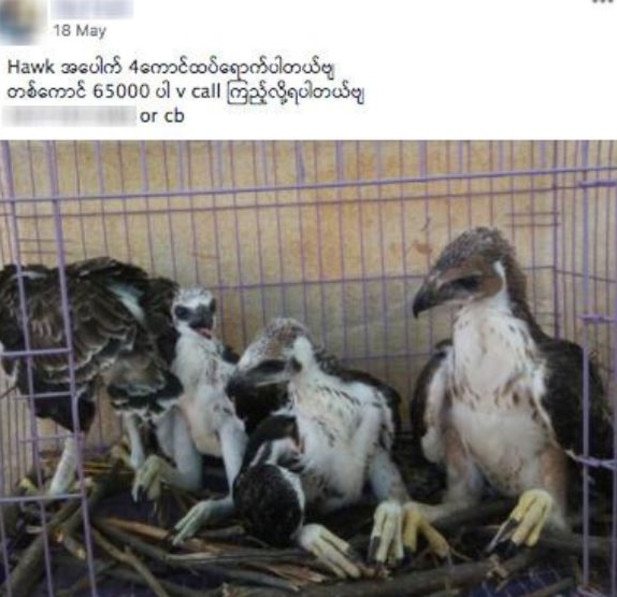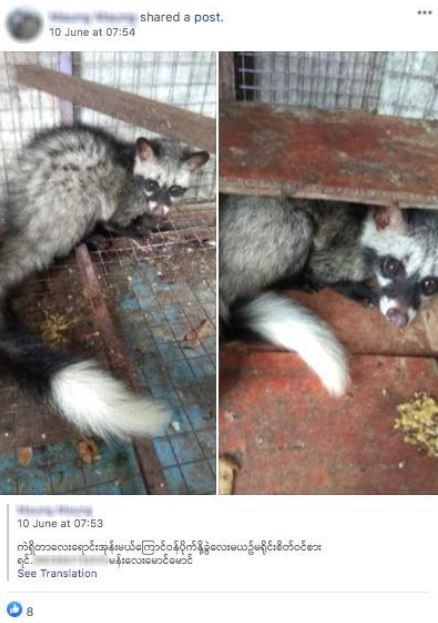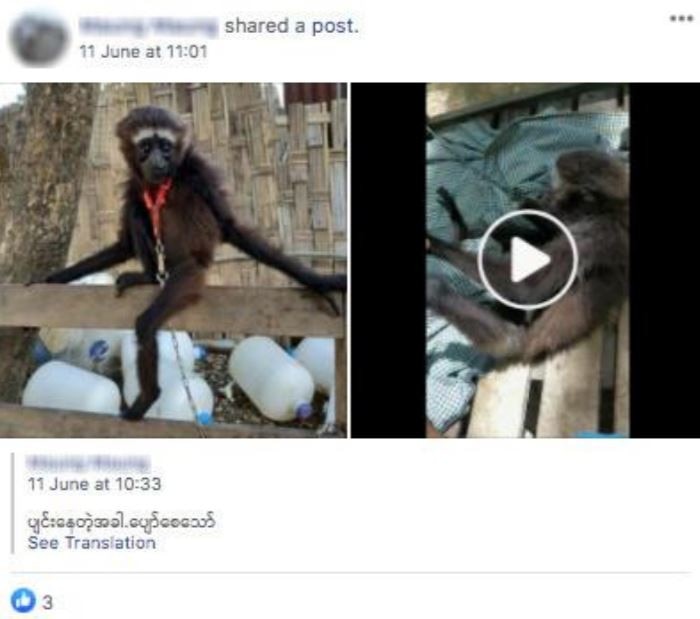Facebook struggles to police posts for illegal wildlife in South East Asia
It’s an illegal multi-billion dollar industry that might have contributed to the current pandemic – and Facebook can’t stop it.

While a disease believed to have spread from animals to people ravages the globe, Facebook is struggling to keep poachers and black market traders from advertising wildlife for sale on its platform.
Selling animals is against Facebook’s policies, but that doesn’t stop the ads appearing.
The massive social media platform that has more than 2.5 billion users has been forced to take down more than 500 posts, accounts and groups advertising wild animals, according to a report from the conservation group World Wildlife Fund (WWF) seen by Reuters.
Ninety-two per cent of the ads were reportedly offering live animals for sale, including birds of prey and wild cats.
RELATED: Sharks found living in active volcano

RELATED: Stray dog adopted as car company mascot
The removed content was taken down once Facebook was made aware of it and Facebook claims to take the issue very seriously.
“We are committed to working with law enforcement authorities around the world to help tackle the illegal trade of wildlife,” a Facebook spokesperson told Reuters, adding that the company relies on technology and tip-offs to find and delete the posts.
The WWF reported finding more than 2100 ads for 94 different species of wild animal, in just one country.
Myanmar is a “global hub” for the illegal wildlife trade according to WWF, due to its abundant wildlife and wilderness, as well as its proximity to the supposedly “lawless” “Golden Triangle” region that was once responsible for most of the world’s heroin, but is now “the global illegal wildlife hypermarket”.
“Not too wild, not too-well behaved. If interested, call,” one Myanmar seller wrote on an ad showing a civet cat cowering inside of a cage.
RELATED: Harry and Meghan’s lockdown project

RELATED: Problem Facebook ‘not ready’ to address
Civets are believed to have been responsible for the transmission of SARS-CoV virus in 2003.
SARS-CoV 2, better known as coronavirus or COVID-19, is believed to have also spread from wild animals.
It’s thought to have come from bats, with the possibility that a pangolin acted as an intermediary.
“Connections to the wildlife trade as the likely source of the virus have spotlighted the devastating impacts this trade can have on human health and economies,” the WWF said last month.
“Recognising the significant threat posed by illegal, unregulated, and high-risk wildlife markets, the Government of China has taken emergency measures to close their wildlife markets and ban the consumption of wildlife for food.
“But the threat of viral transmission and pandemic spread is not just an issue for China. Many countries have wildlife markets that are high-risk, particularly in Southeast Asia and parts of Africa,” the WWF added.
RELATED: Clash at Sydney market over racist slur

RELATED: Facebook boss’ anti-China push
The pandemic doesn’t appear to have dented demand for illegal wildlife traders though, who are using the massive reach and private messaging of social media platforms to find buyers.
Recently Myanmar announced it would undertake a captive breeding program of around 175 threatened species including tigers and pangolins in an effort to reduce poaching.
Wildlife trade organisation TRAFFIC’s senior communications officer Elizabeth John told Reuters Facebook had been “very proactive” in addressing the online trade of wildlife but faced a “considerable logistical challenge” in monitoring posts.
Myanmar tech company KoeKoeTech partners with the University of Sydney to “craft software to improve Myanmar” and its founder Michael Lwin told Reuters “social media platforms in general need a more systematic response” than relying on tip offs.
Facebook and the Instagram platform it also owns are both founding members of the Global Coalition to End Wildlife Trafficking Online along with a variety of other tech companies including Google, Microsoft, Tencent and Alibaba.
The Coalition was established in March 2018.
Last week, the Internet Society of China launched a group standard telling Chinese tech companies how they should combat the illegal wildlife trade online.



